Filter News
Area of Research
- (-) Supercomputing (21)
- Advanced Manufacturing (7)
- Biology and Environment (37)
- Building Technologies (1)
- Computational Biology (1)
- Computational Engineering (2)
- Computer Science (4)
- Electricity and Smart Grid (1)
- Energy Science (68)
- Fusion and Fission (14)
- Fusion Energy (1)
- Isotopes (12)
- Materials (15)
- Materials for Computing (18)
- Mathematics (1)
- National Security (7)
- Neutron Science (18)
- Nuclear Science and Technology (1)
- Quantum information Science (3)
- Sensors and Controls (1)
- Transportation Systems (1)
News Topics
- 3-D Printing/Advanced Manufacturing (1)
- Artificial Intelligence (3)
- Biology (1)
- Biomedical (1)
- Buildings (1)
- Chemical Sciences (1)
- Computer Science (15)
- Coronavirus (2)
- Cybersecurity (2)
- Energy Storage (2)
- Environment (6)
- Frontier (3)
- High-Performance Computing (10)
- Machine Learning (1)
- Materials Science (3)
- Microscopy (2)
- Nanotechnology (1)
- National Security (1)
- Neutron Science (2)
- Physics (1)
- Quantum Computing (5)
- Quantum Science (3)
- Security (1)
- Summit (5)
- Transportation (1)
Media Contacts
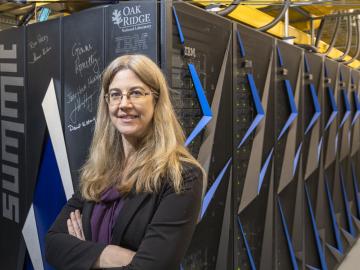
The world is full of “huge, gnarly problems,” as ORNL research scientist and musician Melissa Allen-Dumas puts it — no matter what line of work you’re in. That was certainly the case when she would wrestle with a tough piece of music.

A world-leading researcher in solid electrolytes and sophisticated electron microscopy methods received Oak Ridge National Laboratory’s top science honor today for her work in developing new materials for batteries. The announcement was made during a livestreamed Director’s Awards event hosted by ORNL Director Thomas Zacharia.

A team of collaborators from ORNL, Google Inc., Snowflake Inc. and Ververica GmbH has tested a computing concept that could help speed up real-time processing of data that stream on mobile and other electronic devices.

The U.S. Department of Energy’s Office of Science announced allocations of supercomputer access to 51 high-impact computational science projects for 2022 through its Innovative and Novel Computational Impact on Theory and Experiment, or INCITE, program.
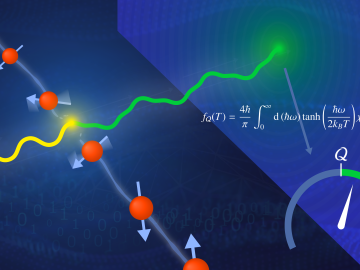
A team led by the U.S. Department of Energy’s Oak Ridge National Laboratory demonstrated the viability of a “quantum entanglement witness” capable of proving the presence of entanglement between magnetic particles, or spins, in a quantum material.

A team from ORNL, Stanford University and Purdue University developed and demonstrated a novel, fully functional quantum local area network, or QLAN, to enable real-time adjustments to information shared with geographically isolated systems at ORNL
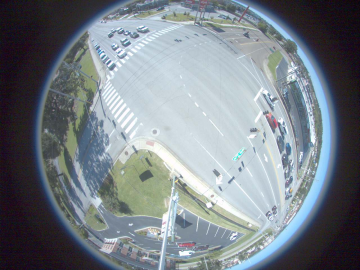
The daily traffic congestion along the streets and interstate lanes of Chattanooga could be headed the way of the horse and buggy with help from ORNL researchers.
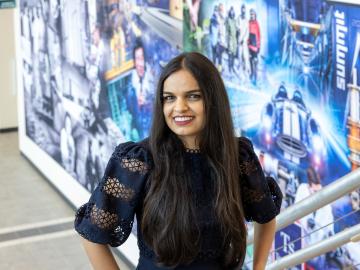
An international problem like climate change needs solutions that cross boundaries, both on maps and among disciplines. Oak Ridge National Laboratory computational scientist Deeksha Rastogi embodies that approach.
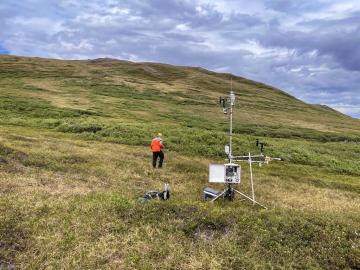
Improved data, models and analyses from ORNL scientists and many other researchers in the latest global climate assessment report provide new levels of certainty about what the future holds for the planet
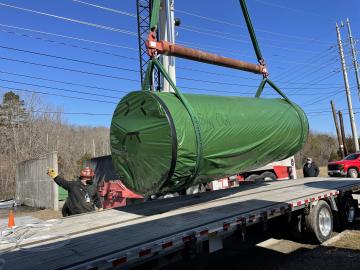
The receipt of a nuclear fuel canister is boosting the research of an Oak Ridge National Laboratory team investigating methods to help the nation effectively dispose of nuclear waste for the long term.


